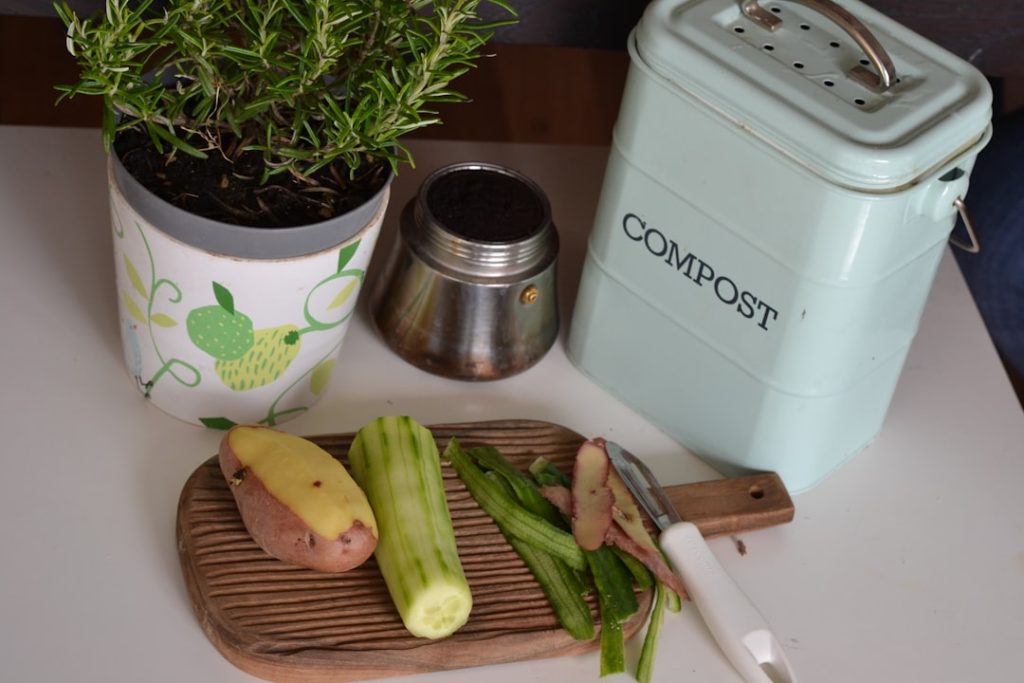Overeating in chickens is a prevalent issue that can result in various health complications. As natural foragers, chickens tend to eat whenever food is available, often consuming more than necessary. This behavior can lead to obesity, which may cause heart problems, joint pain, and reduced egg production.
Overeating can also result in digestive issues and increase the risk of disease. Furthermore, it can lead to higher feed costs for chicken farmers due to excessive consumption. Stress and boredom can exacerbate overeating in chickens, particularly in overcrowded or poorly managed coops where space and stimulation are limited.
Diets high in energy, such as those containing excessive grains or high-calorie foods, can also contribute to overeating. Chicken farmers should be vigilant for signs of overeating in their flock, including excessive weight gain, decreased activity, and changes in egg production. Understanding this issue allows farmers to implement measures to regulate feed intake and promote healthier eating habits among their chickens.
Table of Contents
- 1 The importance of regulating chicken feed intake
- 2 Introducing the solution: a feeder designed to control food consumption
- 3 How the feeder works to prevent overeating in chickens
- 4 Benefits of using a feeder to manage chicken feed intake
- 5 Tips for implementing the feeder in a chicken coop
- 6 Other strategies for promoting healthy eating habits in chickens
- 7 FAQs
- 7.1 What is a feeder that keeps chickens from eating too much?
- 7.2 How does a feeder that keeps chickens from eating too much work?
- 7.3 What are the benefits of using a feeder that keeps chickens from eating too much?
- 7.4 Are there different types of feeders that keep chickens from eating too much?
- 7.5 Where can I purchase a feeder that keeps chickens from eating too much?
Key Takeaways
- Overeating in chickens can lead to health issues and decreased egg production
- Regulating chicken feed intake is crucial for maintaining healthy chickens
- A feeder designed to control food consumption can help prevent overeating in chickens
- The feeder works by limiting access to food and encouraging slower eating
- Using a feeder can lead to healthier chickens and more efficient feed usage
The importance of regulating chicken feed intake
Preventing Health Problems
Regulating feed intake is essential for preventing health issues in chickens. By controlling the amount of feed available, farmers can reduce the risk of obesity, heart problems, joint pain, and digestive issues, ensuring their flock remains healthy and productive.
Managing Feed Costs
Regulating feed intake is also important for managing feed costs. When chickens overeat, they consume more feed than necessary, leading to increased feed costs for farmers. By regulating feed intake, farmers can ensure that their flock is consuming the appropriate amount of feed, reducing waste and saving money.
Promoting Healthy Eating Habits
Regulating feed intake is also important for promoting healthy eating habits in chickens. By providing a balanced diet and controlling the amount of feed available to the flock, farmers can help prevent overeating and promote a healthy weight for their chickens. This can lead to increased egg production and overall better health for the flock. Additionally, regulating feed intake can help reduce stress and boredom in chickens, as they will be less likely to overeat out of these factors.
Introducing the solution: a feeder designed to control food consumption

To address the problem of overeating in chickens, a feeder designed to control food consumption can be an effective solution. These feeders are designed to regulate the amount of feed available to the flock, preventing overeating and promoting healthier eating habits. The feeder is typically designed with a mechanism that only allows a certain amount of feed to be accessible at a time, preventing chickens from consuming more than they need.
This helps to regulate feed intake and prevent overeating, leading to improved health and productivity for the flock. The feeder is also designed to reduce waste and save money on feed costs. By controlling the amount of feed available to the flock, farmers can ensure that their chickens are consuming the appropriate amount of feed, reducing waste and saving money.
Additionally, the feeder can help reduce stress and boredom in chickens by providing them with a controlled amount of feed, preventing them from overeating out of these factors. Overall, a feeder designed to control food consumption is an effective solution for addressing the problem of overeating in chickens.
How the feeder works to prevent overeating in chickens
The feeder works by controlling the amount of feed available to the flock at any given time. This is typically achieved through a mechanism that only allows a certain amount of feed to be accessible at once, preventing chickens from consuming more than they need. The feeder may also be designed with compartments or barriers that limit access to the feed, further preventing overeating.
This helps to regulate feed intake and promote healthier eating habits in chickens. Additionally, some feeders are designed with adjustable settings that allow farmers to control the amount of feed available to the flock. This can be particularly useful for managing the feed intake of different groups of chickens, such as layers and broilers.
By adjusting the settings on the feeder, farmers can ensure that each group is consuming the appropriate amount of feed for their specific needs. Overall, the feeder works by controlling the amount of feed available to the flock, preventing overeating and promoting healthier eating habits.
Benefits of using a feeder to manage chicken feed intake
There are several benefits to using a feeder to manage chicken feed intake. One of the primary benefits is improved health and productivity for the flock. By regulating feed intake and preventing overeating, farmers can help prevent health issues such as obesity, heart problems, joint pain, and digestive issues.
This can lead to increased egg production and overall better health for the flock. Additionally, using a feeder can help reduce stress and boredom in chickens by providing them with a controlled amount of feed, preventing them from overeating out of these factors. Using a feeder can also help reduce waste and save money on feed costs.
By controlling the amount of feed available to the flock, farmers can ensure that their chickens are consuming the appropriate amount of feed, reducing waste and saving money. This can lead to significant cost savings over time, making a feeder a cost-effective solution for managing feed intake. Overall, using a feeder to manage chicken feed intake offers a range of benefits for both the health and productivity of the flock and for reducing feed costs.
Tips for implementing the feeder in a chicken coop

Here is the rewritten text with 3-4 Implementing a Feeder in a Chicken Coop: Best Practices
Choosing the Right Feeder for Your Flock
When selecting a feeder, it’s crucial to consider the size and needs of your flock. Different types of feeders are better suited for different groups of chickens, such as layers and broilers. By choosing the right feeder, you can ensure that your chickens receive the nutrients they need to thrive.
Optimal Placement and Monitoring
Once you’ve chosen a feeder, it’s essential to place it in an accessible but controlled location within the coop. This allows chickens to easily access the feed while preventing overeating. Regularly monitoring the feeder and adjusting its settings as needed will also help ensure that your flock is consuming the appropriate amount of feed.
Providing Additional Stimulation and Enrichment
In addition to implementing a feeder, it’s vital to provide additional stimulation and enrichment for your flock. This can help reduce stress and boredom, which can lead to overeating. By providing activities and toys, you can promote healthier eating habits and a more balanced diet.
Effective Implementation for a Healthier Flock
By following these tips, farmers can effectively implement a feeder in their chicken coop to manage feed intake and promote healthier eating habits in their flock. With the right feeder, placement, and monitoring, you can help your chickens live their best lives.
Other strategies for promoting healthy eating habits in chickens
In addition to using a feeder to manage feed intake, there are several other strategies that farmers can use to promote healthy eating habits in their chickens. One strategy is to provide a balanced diet that meets the specific nutritional needs of the flock. This can help prevent overeating by ensuring that chickens are receiving all of the nutrients they need from their diet.
Another strategy is to provide ample space and enrichment for the flock. Overcrowding and lack of stimulation can lead to stress and boredom, which can contribute to overeating. By providing plenty of space for the flock to move around and engage in natural behaviors such as scratching and pecking, farmers can help reduce stress and boredom in their chickens.
Finally, it is important to regularly monitor the health and behavior of the flock to identify any signs of overeating or other health issues. By staying attentive to the needs of their chickens, farmers can take proactive steps to promote healthy eating habits and overall well-being in their flock. In conclusion, overeating in chickens is a common issue that can lead to a range of health problems and increased feed costs for farmers.
Regulating feed intake is crucial for maintaining the health and productivity of a chicken flock. A feeder designed to control food consumption offers an effective solution for preventing overeating in chickens by regulating feed intake and promoting healthier eating habits. By implementing a feeder in their chicken coop and following other strategies for promoting healthy eating habits, farmers can help ensure that their flock remains healthy and productive.
If you’re looking for ways to keep your chickens from eating too much, you might be interested in an article on Poultry Wizard that discusses the importance of providing a proper coop for turkeys. The article, “Do Turkeys Need a Coop?”, offers valuable insights into the benefits of having a well-designed coop for turkeys, which can also be applied to keeping chickens from overeating. By providing a suitable living space for your poultry, you can help regulate their food intake and ensure they maintain a healthy diet.
FAQs
What is a feeder that keeps chickens from eating too much?
A feeder that keeps chickens from eating too much is a specially designed feeding system that helps control the amount of food chickens consume. It is designed to prevent overeating and reduce food wastage.
How does a feeder that keeps chickens from eating too much work?
These feeders are typically designed with mechanisms that limit the amount of food accessible to the chickens at any given time. This can include adjustable openings, barriers, or other features that control the flow of food.
What are the benefits of using a feeder that keeps chickens from eating too much?
Using a feeder that keeps chickens from eating too much can help prevent obesity and related health issues in chickens. It also helps reduce food wastage and saves on feed costs.
Are there different types of feeders that keep chickens from eating too much?
Yes, there are various types of feeders available, including treadle feeders, gravity feeders, and adjustable feeders. Each type has its own unique mechanism for controlling the amount of food accessible to the chickens.
Where can I purchase a feeder that keeps chickens from eating too much?
These feeders can be purchased from farm supply stores, online retailers, and specialty poultry equipment suppliers. It’s important to choose a feeder that is appropriate for the size and number of chickens in your flock.
Meet Walter, the feathered-friend fanatic of Florida! Nestled in the sunshine state, Walter struts through life with his feathered companions, clucking his way to happiness. With a coop that’s fancier than a five-star hotel, he’s the Don Juan of the chicken world. When he’s not teaching his hens to do the cha-cha, you’ll find him in a heated debate with his prized rooster, Sir Clucks-a-Lot. Walter’s poultry passion is no yolk; he’s the sunny-side-up guy you never knew you needed in your flock of friends!







